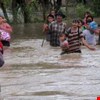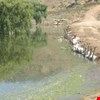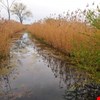

Global Water Partnership-Caribbean (GWP-C) was among various water agencies and stakeholders invited to the Project Launch Workshop of a Regional Water Sector Review being spearheaded by the Caribbean Development Bank (CDB).
The Toco Foundation, a non-governmental organisation (NGO) based in the north-east coast of Trinidad has been granted TT$17 million from the Green Fund of Trinidad and Tobago for an extensive rainwater harvesting (RWH) project.
 Water and its management is becoming not just a local but a global priority. The UN Rio+20 Declaration emphasises the need to establish a green economy as the means to achieving sustainable development while protecting and improving the world’s natural resources. Water is increasingly seen as a central plank of the green economy. It is embedded in all aspects of development – food security, health, and poverty reduction – and in sustaining economic growth in agriculture, industry, and energy generation.
Water and its management is becoming not just a local but a global priority. The UN Rio+20 Declaration emphasises the need to establish a green economy as the means to achieving sustainable development while protecting and improving the world’s natural resources. Water is increasingly seen as a central plank of the green economy. It is embedded in all aspects of development – food security, health, and poverty reduction – and in sustaining economic growth in agriculture, industry, and energy generation.

The Water Reform process in El Salvador has been advancing rapidly, thanks to the willingness of the government to work with different stakeholders committed to good water governance.

The Ministers in charge of water of the Member States of the Economic Community of Central African States (ECCAS) met on April 6, 2012, in Bangui, to discuss options for the establishment of a regional Water Resources Management Coordination Centre. One of the recommendations of the meeting was that the ECCAS General Secretariat, working together with GWP Central Africa and the Development Bank of Central African States (BDEAC), finalizes the strategic documents for water financing in Central Africa and submits them for adoption by ECCAS Members States.

18th June 2012 Time: 11:30-13:00
Venue: P3-6, RioCentro, Rio de Janeiro, Brazil

Dr. Dumitru Drumea of GWP Moldova shared experiences with development of Bic River basin management plan and involvement of local authorities in the implementation of the program of measures.

The GWP Technical Committee Background paper No. 16: Integrated Urban Water Management by Dr. Akica Bahri, Technical Committee member, discusses different aspects of the urban water cycle and highlights the challenges of how to integrate urban, land-use planning and water planning towards economic development.

GWP CEE calls for more integration of sanitation in water resources development, planning and management for the benefit of disadvantaged groups in developing as well as developed countries.

In May, 2012, Global Water Partnership China Hebei conducted investigation and studies in four cities and nine counties.